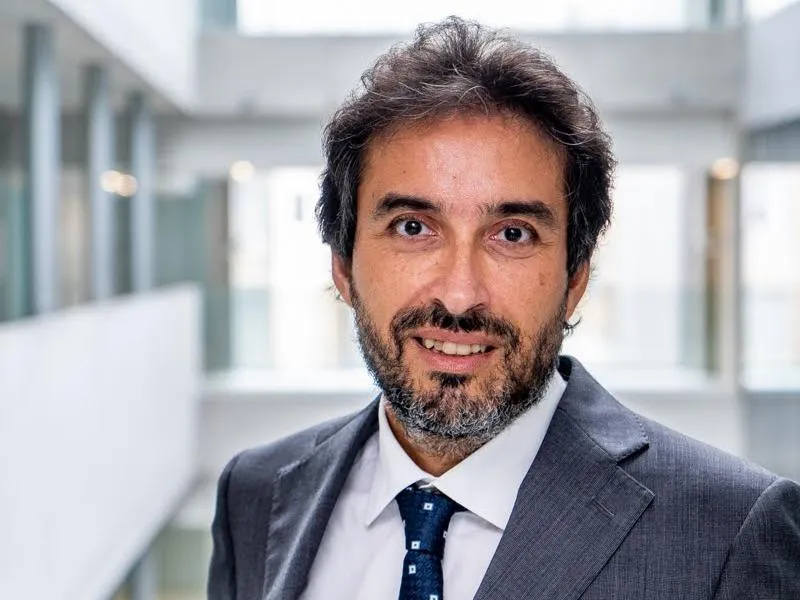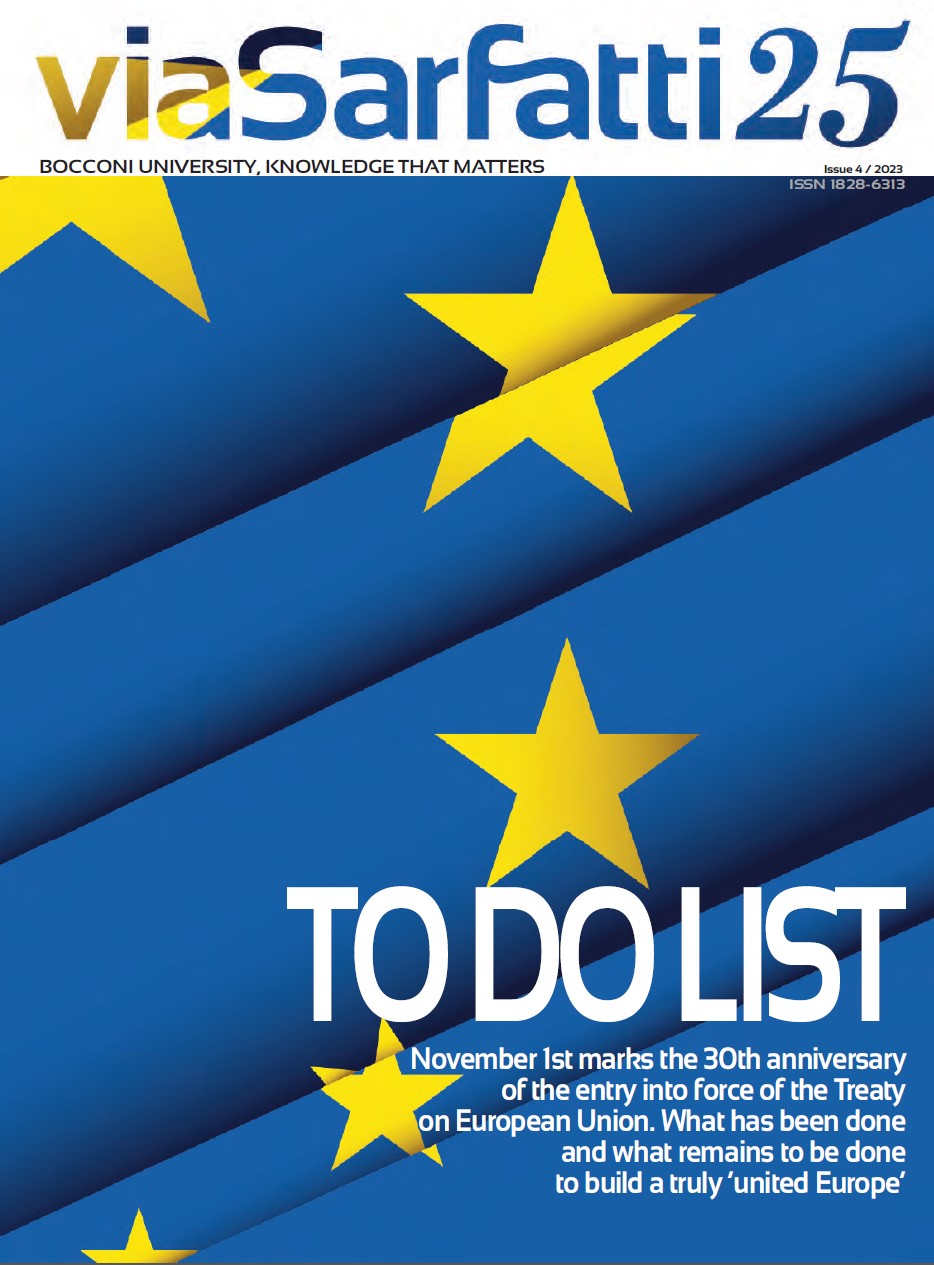
Bocconi's European spirit
 In the year of the 30th anniversary of the European Union, Bocconi has launched the Institute for European Policy Making, which we first presented in a beautiful and moving event last December in the presence of President Mattarella and President von der Leyen. The IEP@BU is not only a true testimony of gratitude and esteem towards Mario Monti, who is its Honorary President, but it is also consolidating itself as a think tank that already counts 70 Fellows. Also this year, the Bocconi alumni community has awarded the Alumnus of the Year prize to Mario Nava, now head of the European Commission's DG Reform, who has been working in the European capital for 29 years to accelerate the integration of the 27 EU member states, fulfilling his dream as a young Bocconi student: "To work in Europe and have an impact on people's lives", as he tells us in the thorough interview we publish in this special issue of our magazine dedicated to Europe.
In the year of the 30th anniversary of the European Union, Bocconi has launched the Institute for European Policy Making, which we first presented in a beautiful and moving event last December in the presence of President Mattarella and President von der Leyen. The IEP@BU is not only a true testimony of gratitude and esteem towards Mario Monti, who is its Honorary President, but it is also consolidating itself as a think tank that already counts 70 Fellows. Also this year, the Bocconi alumni community has awarded the Alumnus of the Year prize to Mario Nava, now head of the European Commission's DG Reform, who has been working in the European capital for 29 years to accelerate the integration of the 27 EU member states, fulfilling his dream as a young Bocconi student: "To work in Europe and have an impact on people's lives", as he tells us in the thorough interview we publish in this special issue of our magazine dedicated to Europe.
In a Europe that is ageing, that is a continent of immigration and that is once again the scene of wars, what all of us, Europeans and non-Europeans alike, are witnessing day after day, despite the contradictions and sovereignist escapades, is the progressive increase in European integration. Admittedly, this integration is often dictated more by convenience and economic and social necessity than by ideological will. But, to paraphrase Massimo D'Azeglio, "once Europe is made, Europeans must be made". A cultural process that is certainly long and cannot be improvised, made up of ideas that need to be cultivated and integration that needs to be put into practice. But reading this issue of our magazine, looking at the photos of our community, representing the 27 countries of the Union, it is increasingly clear that, despite the many things that still need to be done, the future will be more and more European.